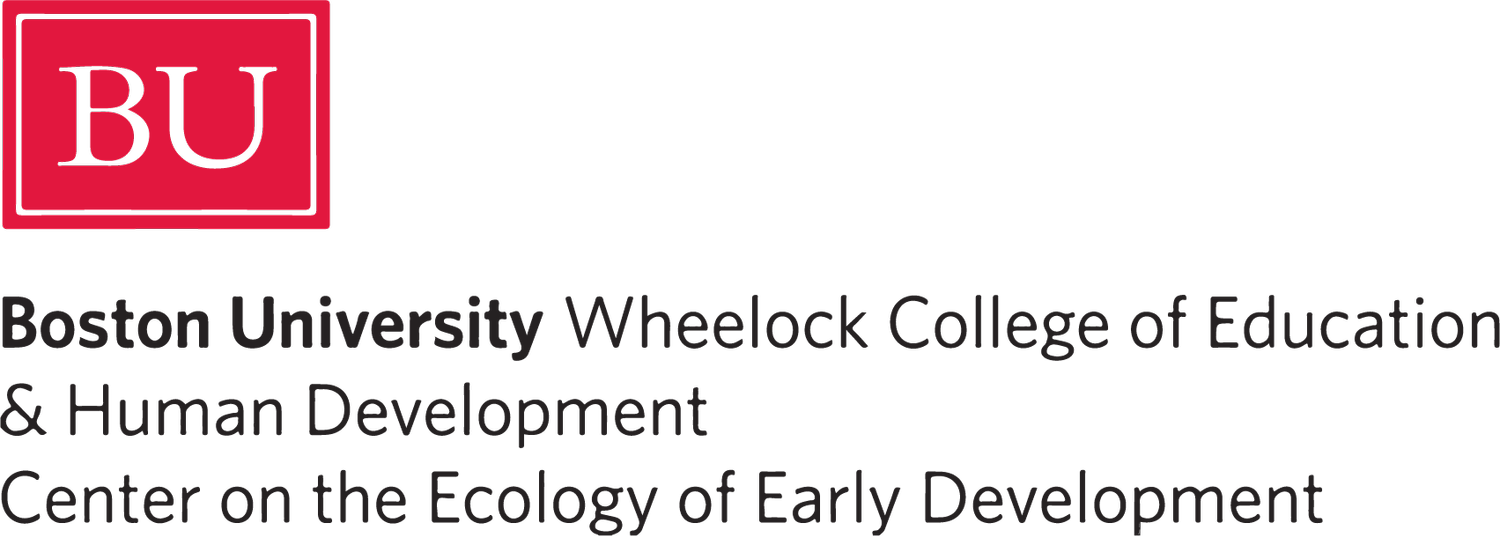Sarah is Awarded the Spencer Dissertation Fellowship
Can you tell us a bit about the research you are doing?
SARAH:
My research is broadly focused on the contextual factors surrounding bilingual development in early childhood for children who speak a minority language at home. I have examined both distal contextual factors such as parental attitudes towards bilingualism as well as more proximal factors such as parental input in each language in the home. I am currently conducting the second wave of data collection for my dissertation study on the transition to preschool for children who speak Spanish at home. For this study, I visited 35 Spanish-speaking families with a 3 or 4-year-old child who was slated to begin preschool in Fall 2019. I am now conducting follow-up visits with each family – virtually, due to COVID-19 – to investigate how home language practices and child language skills shift or remain stable following the transition to formal schooling. While this work is focused on the home environment, I am fortunate to be involved in other projects through the Ecology of School Readiness Lab that allow me to investigate bilingual language practices in the school environment as well.
What is the NAEd/Spencer Dissertation Fellowship? How is it awarded? What was the application process?
SARAH:
The NAEd/Spencer Dissertation Fellowship is a competitive national fellowship awarded to about 35 doctoral candidates each year. Its mission is to encourage a new generation of scholars whose research focuses on improving education. In addition to providing financial support for the dissertation writing year, the fellowship includes two professional development retreats. The application process starts in early fall of the previous year. Applications are due in early October, semi-finalists are invited to submit an updated work plan and budget in March, and finalists are selected by the committee and notified in April.
Why did you apply for the fellowship? What makes it unique?
SARAH:
I applied to this fellowship because I felt that my research – which spans the fields of child language acquisition, early childhood education, and bilingualism – was aligned with their mission. I was also excited about the opportunity to connect with other doctoral students and education scholars from across the country.
How do you hope to use the opportunity provided by the fellowship?
SARAH:
First and foremost, I plan to finish my dissertation and graduate! But I am also hoping that life will be back to normal enough that the retreats will happen in person and I will meet new future collaborators and mentors through this fellowship.
What inspired your journey in this field/with this research?
SARAH:
I’ve been fascinated by languages since I was a child learning little scraps of Spanish at home from my dad (who spent the bulk of his childhood in Venezuela). I was lucky to have the chance to learn Spanish more formally at school and spend stretches of time in Ecuador and Guatemala in my twenties. I became interested in bilingual development while working as a literacy coach in bilingual classrooms in the Chicago Public Schools. It was then that I started to look into the research on how to best support language and literacy development in children who speak a minority language at home. I felt like there must be better education policies and pedagogical methods to capitalize on my students’ unique strengths. When I found that many of my questions remained unanswered, and that there seemed to be a ubiquitous “more research is needed” refrain at the end of every article I read, I decided to become an education researcher myself.
One of the questions that I have been wondering about for years is whether immersion in an English environment at school has a measurable (negative) effect on children’s use of their minority home language, and if so, are there particular parental language practices that can mitigate this effect. In my dissertation research, I will finally able to examine this question empirically, which is very exciting!
Do you know what you'd like to do with your research in the future?
SARAH:
I am hoping that the corpus of data that I am amassing for my dissertation study will serve as the basis for several papers on parent-child interactions and bilingual development. I plan to pursue a tenure-track position in a school of education so that I can develop a research program focused on how children acquire and maintain multiple languages in early childhood and how we can optimally support children’s bilingual development at home and school.
Thank you, Sarah, for sharing with us about your impressive accomplishment. Good luck and we look forward to hearing about your work in the future!


